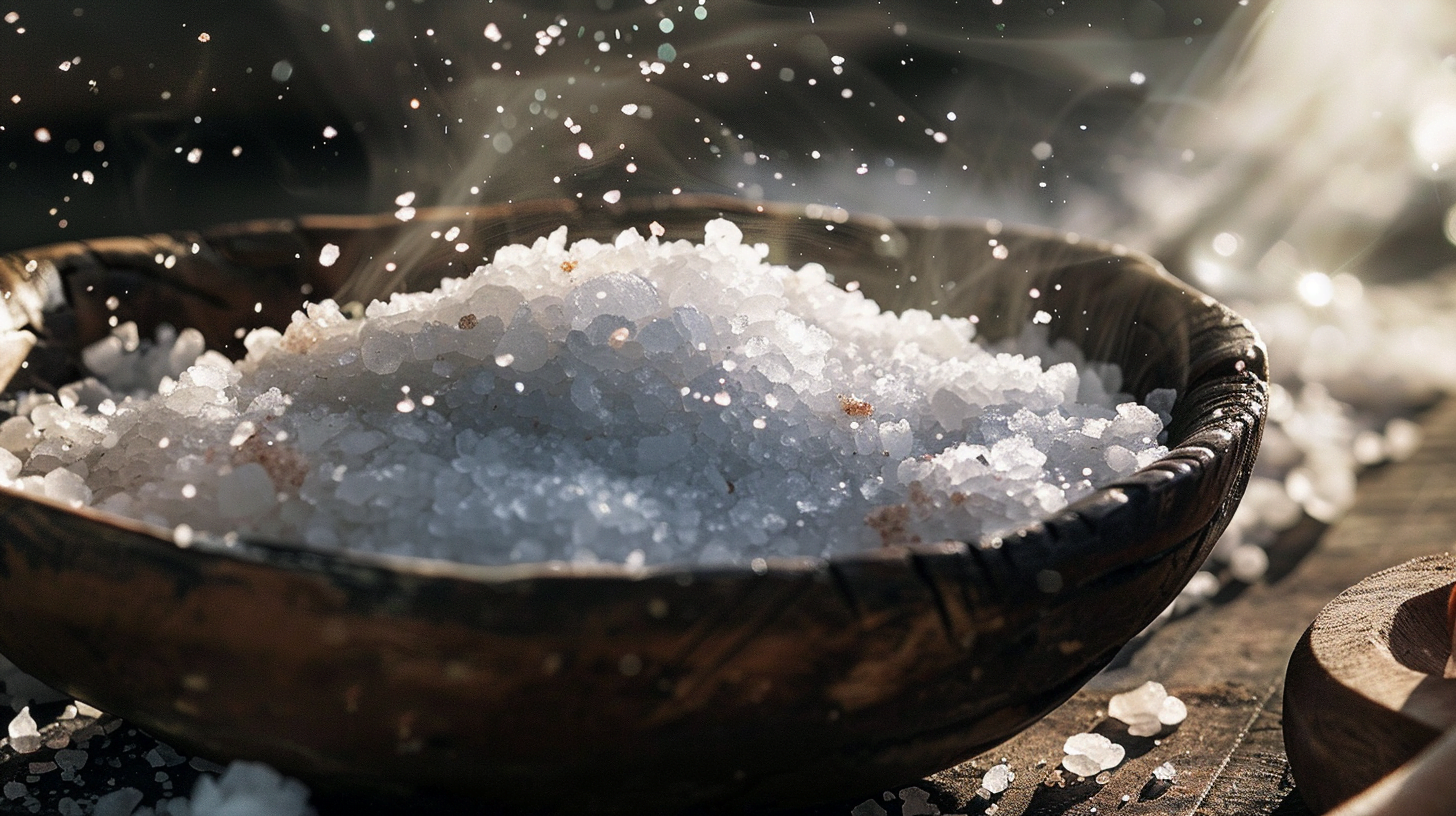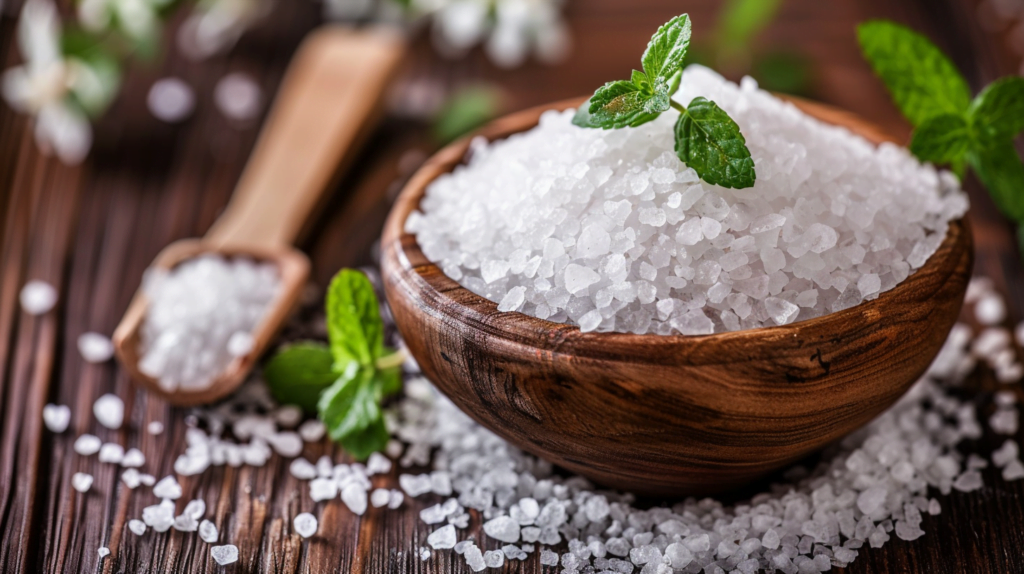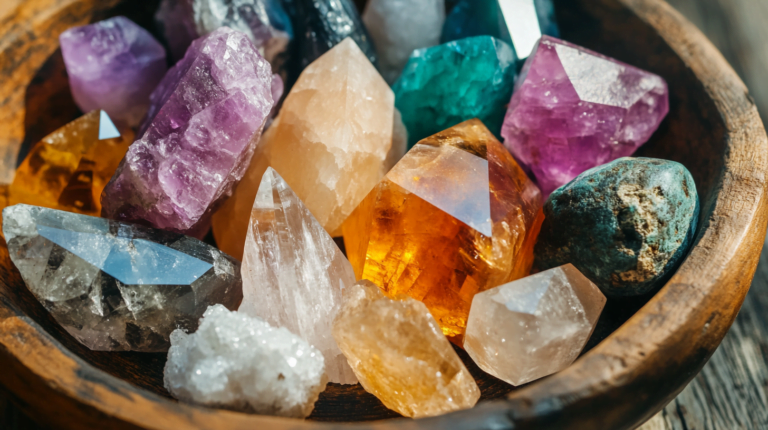Book Appointment Now
Can Salt Bring Good Luck? Unveiling the Mystical Powers of this Everyday Mineral
Discover if salt can truly bring good luck! Explore ancient beliefs, scientific facts, and global traditions surrounding lucky salt. Learn practical rituals and uncover the psychology behind this age-old superstition. Sprinkle some fortune into your life with our comprehensive guide to salt's mystical powers.

Table of Contents
Salt has been a staple in human diets and cultures for millennia. But beyond its culinary uses, this humble mineral has long been associated with good fortune and protection. Let’s dive into the salty world of luck and superstition to see if there’s any truth to the claim that salt can bring good luck.
The Salty History of Luck and Superstition
Salt’s reputation as a lucky substance dates back thousands of years. Ancient civilizations revered salt for its preservative properties and its ability to enhance flavors. This practical importance soon evolved into spiritual significance.
In ancient Egypt, salt was used in religious ceremonies and was believed to ward off evil spirits. The Romans considered salt so valuable that soldiers were sometimes paid in salt – hence the word “salary.” In many cultures, spilling salt was considered unlucky, while tossing a pinch over your left shoulder was thought to blind the devil and prevent misfortune.
Fun fact: The superstition of throwing salt over your shoulder likely originated from the belief that the devil lurks behind your left shoulder, waiting to cause mischief.
The Science Behind Salt: More Than Just Flavor
Before we delve deeper into salt’s lucky reputation, let’s take a moment to appreciate the science behind this mineral. Salt, or sodium chloride (NaCl), is composed of two elements:
- Sodium (Na): A soft, silvery-white metallic element
- Chlorine (Cl): A yellowish-green gas
When combined, these elements form the crystalline structure we know as table salt. But salt’s importance goes far beyond seasoning our food. Here’s why we’re naturally drawn to salt:
- Essential for life: Our bodies need sodium to function properly, regulating blood pressure and supporting nerve and muscle function.
- Preservative: Salt has been used for centuries to preserve food, allowing our ancestors to store provisions for longer periods.
- Electrolyte balance: Salt helps maintain the proper balance of fluids in our bodies.
This intrinsic connection to our survival might explain why we’ve imbued salt with such mystical properties over time.
Types of Lucky Salt: Not All Grains Are Created Equal
When it comes to lucky salt, not all varieties are considered equally potent. Let’s explore some of the most popular types of salt believed to bring good fortune:
Sea Salt
Many believe that sea salt carries the energy of the ocean, making it particularly powerful for cleansing and protection rituals. Its natural harvesting process is thought to preserve more minerals and trace elements, enhancing its spiritual properties.
Himalayan Pink Salt
Prized for its beautiful pink hue, Himalayan salt is often considered one of the purest forms of salt on Earth. Its color comes from trace minerals like magnesium, potassium, and calcium. Some believe these additional minerals give Himalayan salt extra power in luck-bringing rituals.
Black Salt
Also known as kala namak, black salt is actually pink in color and has a distinct sulfuric smell. In some traditions, particularly in India, black salt is believed to have strong protective properties and is used in rituals to ward off negative energy.
Here’s a quick comparison of these lucky salts:
| Salt Type | Color | Origin | Believed Properties |
|---|---|---|---|
| Sea Salt | White | Evaporated seawater | Cleansing, protection |
| Himalayan Pink Salt | Pink | Pakistan | Purification, balance |
| Black Salt | Pink/Purple | India | Protection, negativity removal |
Salt Rituals for Good Luck: Sprinkle Your Way to Fortune
Now that we understand the types of salt believed to be lucky, let’s explore some common rituals and practices associated with using salt for good fortune:
- Tossing salt over your shoulder: As mentioned earlier, this practice is thought to blind the devil and prevent bad luck. Always use your right hand to toss the salt over your left shoulder.
- Creating protective barriers: Sprinkling salt in a line across doorways or windowsills is believed to create a barrier that negative energy cannot cross.
- Salt baths: Adding salt to your bath water is thought to cleanse your aura and attract positive energy. For an extra boost, try adding a few drops of essential oils like lavender or rosemary.
- Salt in the corners: Placing small bowls of salt in the corners of a room is said to absorb negative energy and promote harmony in the space.
- Saltwater cleansing: Mix salt with water and use it to cleanse crystals, jewelry, or even your home by sprinkling it around.
“Salt is born of the purest parents: the sun and the sea.” – Pythagoras
While these rituals may seem simple, many people swear by their effectiveness. The key is to perform them with intention and belief.
Salt in Different Cultures: A Global Perspective on Lucky Crystals
Salt’s association with luck and protection isn’t limited to Western cultures. Let’s take a whirlwind tour around the world to see how different societies view salt:
Japan: Morishio and Sumo
In Japan, small piles of salt called “morishio” are often placed outside businesses to attract good fortune and ward off evil spirits. Sumo wrestlers also throw salt into the ring before a match to purify the space.
India: Salt in Wedding Traditions
In some Indian wedding ceremonies, the bride and groom exchange salt seven times, symbolizing their commitment to each other through all of life’s flavors – sweet and salty.
Native American Salt Ceremonies
Many Native American tribes have used salt in purification ceremonies and as offerings to spirits. The Pueblo people of the American Southwest, for instance, have long revered salt as a sacred substance.
Case Study: The Salt Mines of Wieliczka, Poland
The Wieliczka Salt Mine, a UNESCO World Heritage site, offers a unique perspective on salt’s cultural significance. This 700-year-old mine features underground chambers, statues, and even a cathedral – all carved from salt. Miners believed that the salt protected them from harm, and many visitors today report feeling a sense of peace and well-being in the mine’s salty atmosphere.

The Psychology of Salt Luck: Why We Believe
Our belief in salt’s lucky properties might have more to do with psychology than mysticism. Here’s why:
- Placebo effect: The simple act of performing a ritual can boost our confidence and reduce anxiety, leading to better outcomes.
- Sense of control: In an unpredictable world, rituals give us a sense of control over our fate.
- Cultural conditioning: We’re often raised with these beliefs, making them feel natural and true.
- Confirmation bias: We tend to remember the times when salt “worked” and forget the times it didn’t.
While skeptics might dismiss salt luck as mere superstition, the psychological benefits of these beliefs and rituals shouldn’t be underestimated. If sprinkling a little salt makes you feel more confident and positive, it might just bring you good luck after all!
Conclusion: Is Salt Really Lucky, or Just Well-Seasoned Wisdom?
After exploring the history, science, and cultural significance of salt luck, we’re left with a question: Can salt really bring good luck? The answer, like salt itself, is a bit of a mixture.
While there’s no scientific evidence that salt has mystical properties, the long-standing belief in its power speaks to its importance in human culture. The rituals and practices associated with lucky salt can provide comfort, boost confidence, and create a sense of control – all of which can lead to positive outcomes in our lives.
Whether you choose to embrace salt luck or take it with a grain of… well, salt, there’s no denying the fascinating role this mineral has played in human history and belief systems. So the next time you reach for the salt shaker, remember: you might be holding a pinch of ancient wisdom in your hands.



